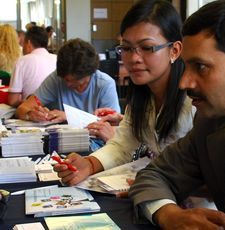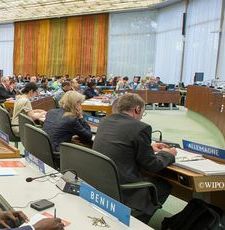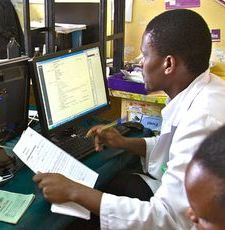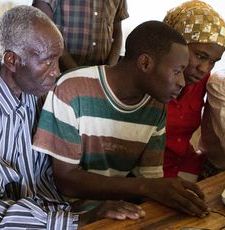ABOUT THE RESOURCE
In 2011-2013 EIFL provided financial support to 34 projects that implemented national and institutional open access (OA) advocacy campaigns to reach out to research communities and OA publishing initiatives.
Through small grants and support from their own institutions, the projects engaged in a wide variety of campaigns and activities, including: holding workshops, creating websites, building institutional OA repositories, creating e-learning courses, and implementing OA publishing platforms.
The case studies resulting from the projects reveal impressive first-time achievements and will help increase the availability of research literature in developing and transition countries.
Learn more about the key achievements for this national OA publishing project in Serbia below. You can access the full case study (strategies, tactics and tools, success stories and lessons learnt) by clicking on the download button.
About the project in Serbia
In Serbia, OA has been promoted since 2000, mainly through cooperation of Serbian Library Consortium for Coordinated Acquisition (KOBSON) and EIFL, supported by CEON/CEES. As a result, Serbia was among the first countries in the region to widely accept the new publishing model and practice. At the moment, almost all Serbian internationally recognized journals (about 150 of them), are available under OA, primarily through SCIndeks: the Serbian Citation Index.
However, the global economic crisis followed by severe cut-offs of the journal budgets provided by the Ministry of Science (basically the only research journals funder in Serbia), forced publishers to look for other business models. Some of the journals were interested to learn more about article processing charges (APCs) and start practicing them, but came across difficulties in their attempts to collect the payments.
Key achievements:
- Serbian OA journal publishers were provided with software and organizational ‘know how’ to collect APCs from the authors or their affiliated institutions.
- A partnership with publishers was established based on a public call followed by an internet survey, and with an in-depth CEON/CEES analysis of the journals potentials of switching to the new model. More than 40 representatives of publishers and editorial boards have been trained to practice APCs.
- An immediate result of this project is that five journals switched to the new business practice (Serbian Journal of Experimental and Clinical Research; PONS - Medicinski časopis; Acta Chirurgica Iugoslavica; Vojnosanitetski Pregled; and Vojnotehnički Glasnik), and enrolled additional 21 journals into preparatory programme.
- The project provides a new model for Serbian journals publishers, which will lead to their long-term economic independence.
- A proposal was submitted to the Ministry of Education and Science to support journals in transition to new business models (pending decision).
SHARE / PRINT









